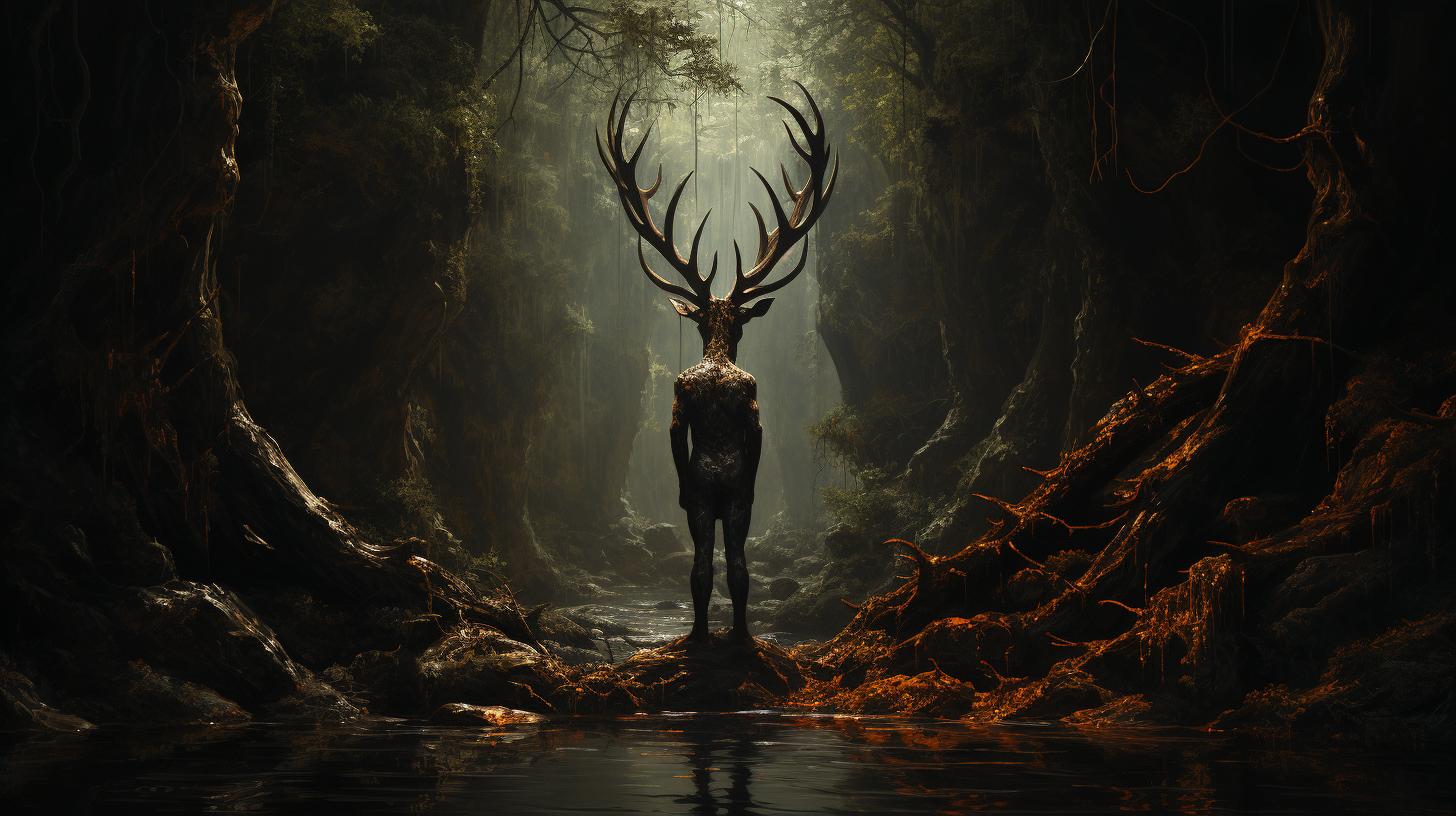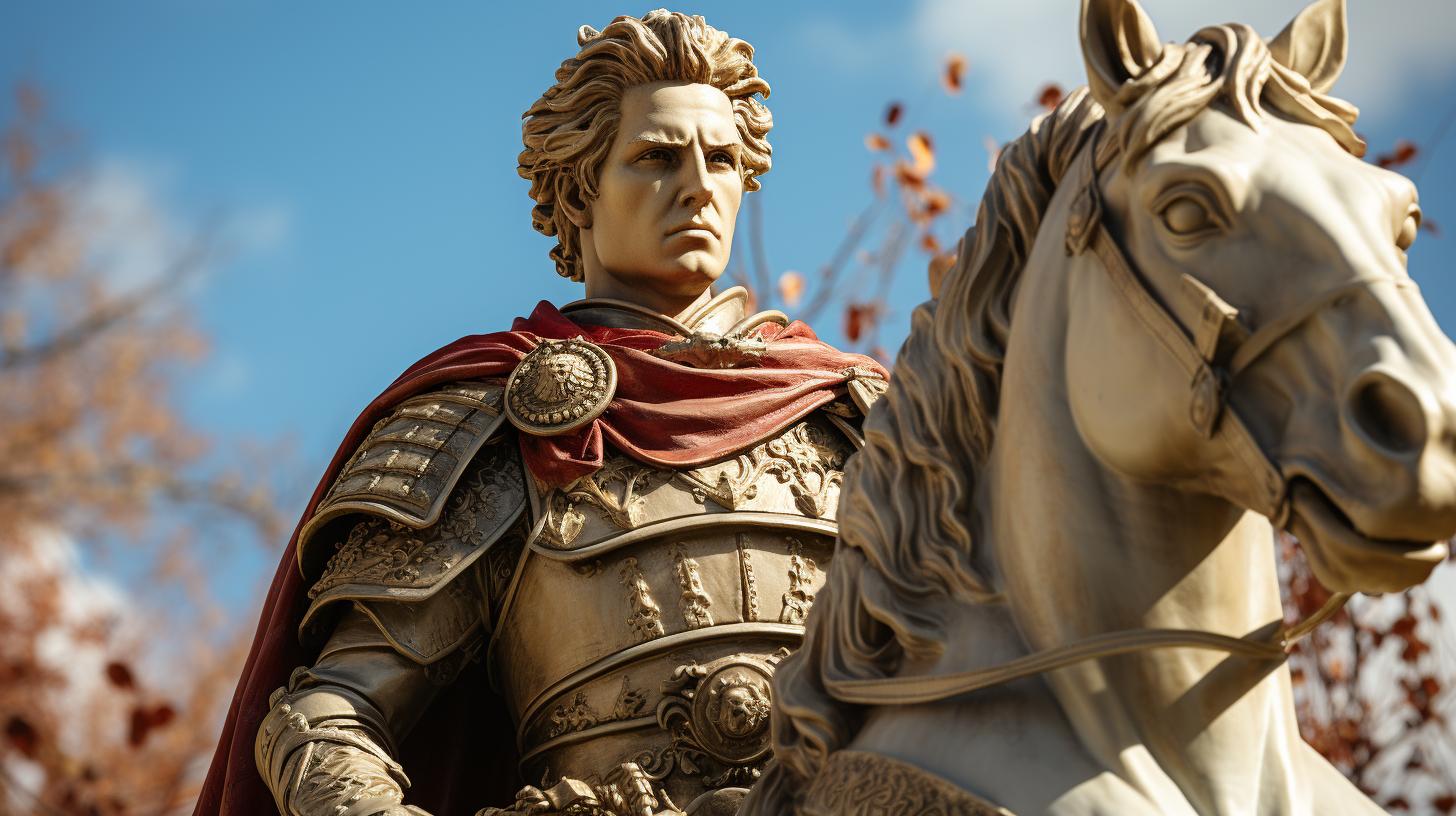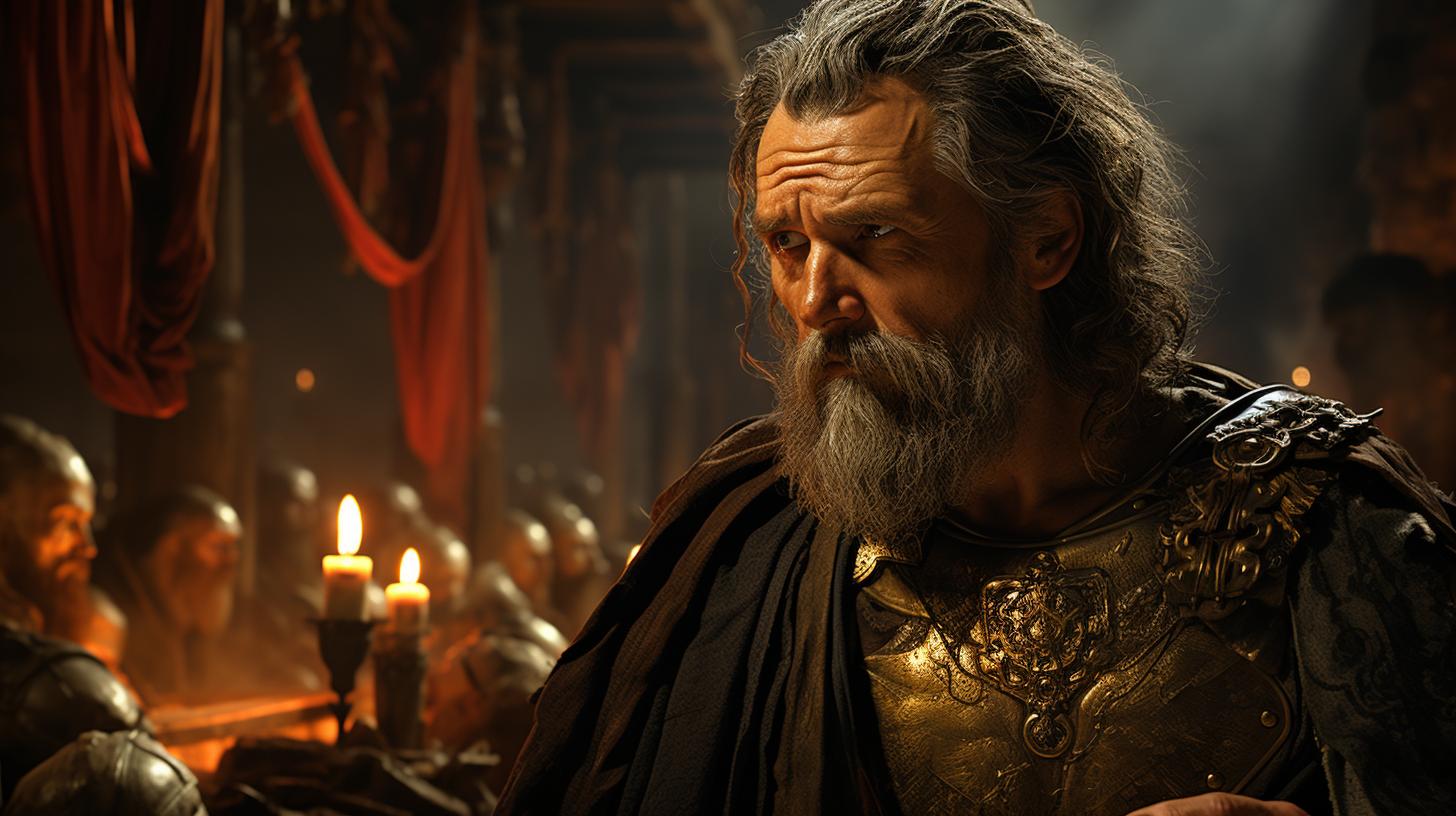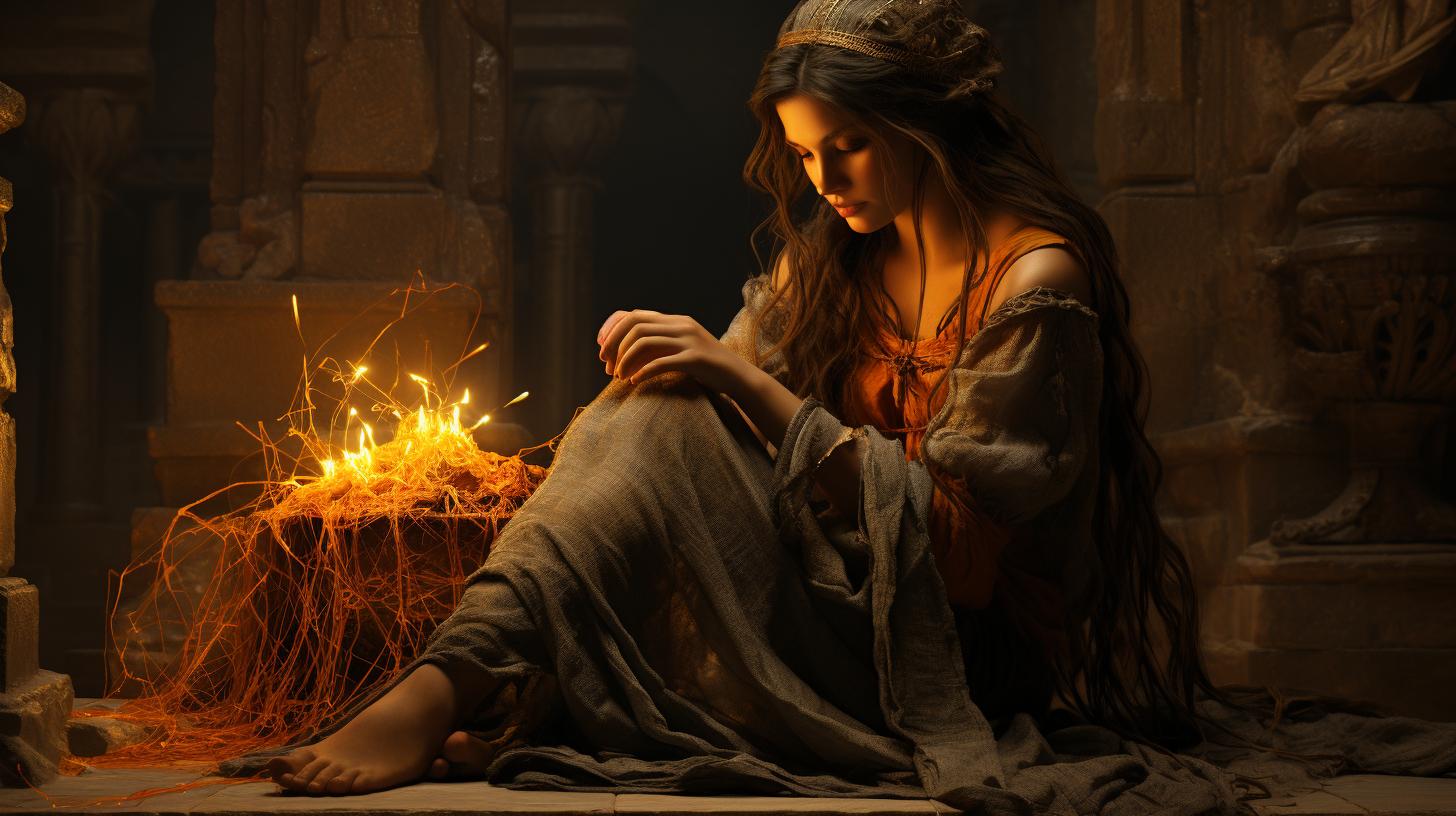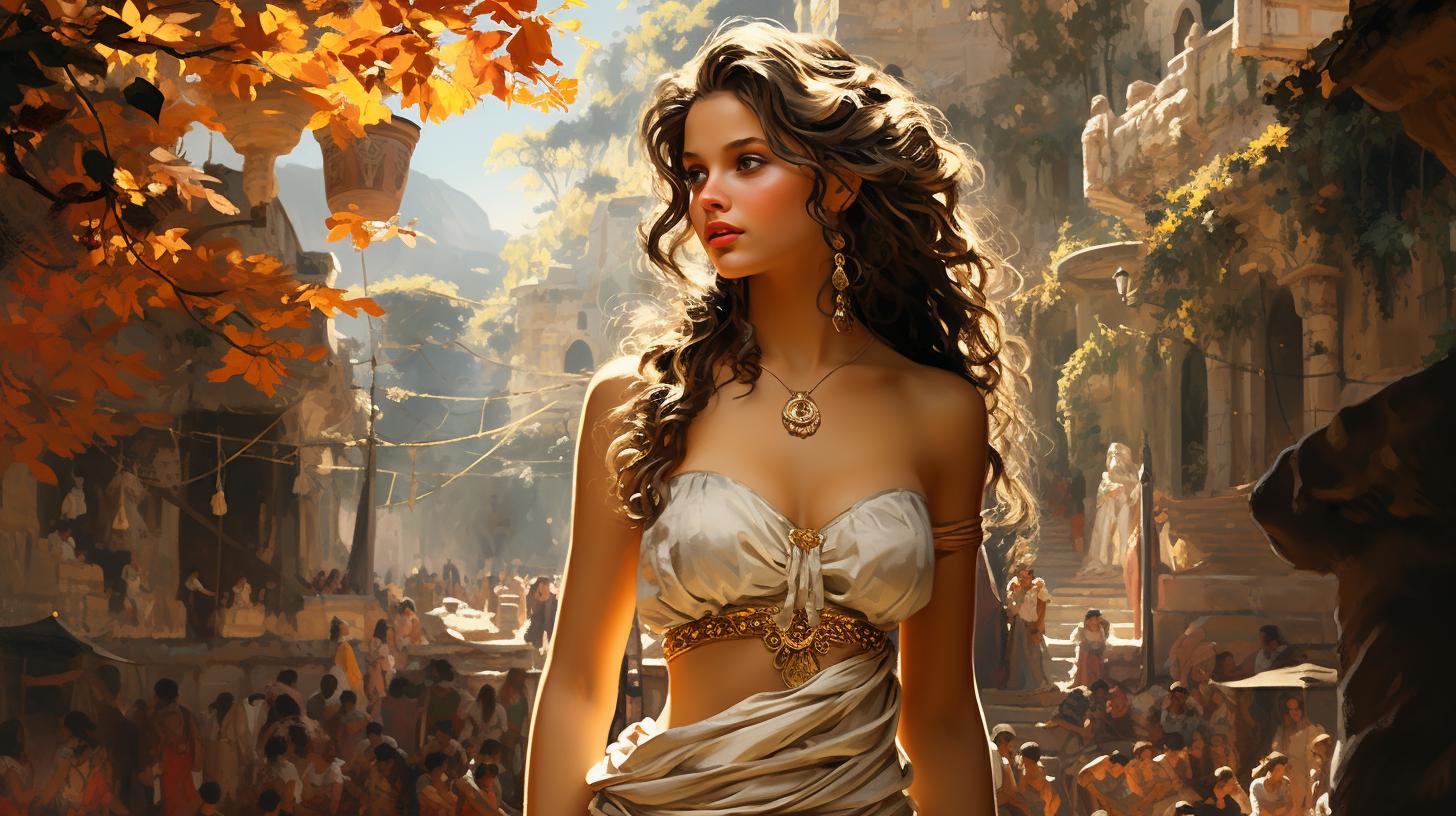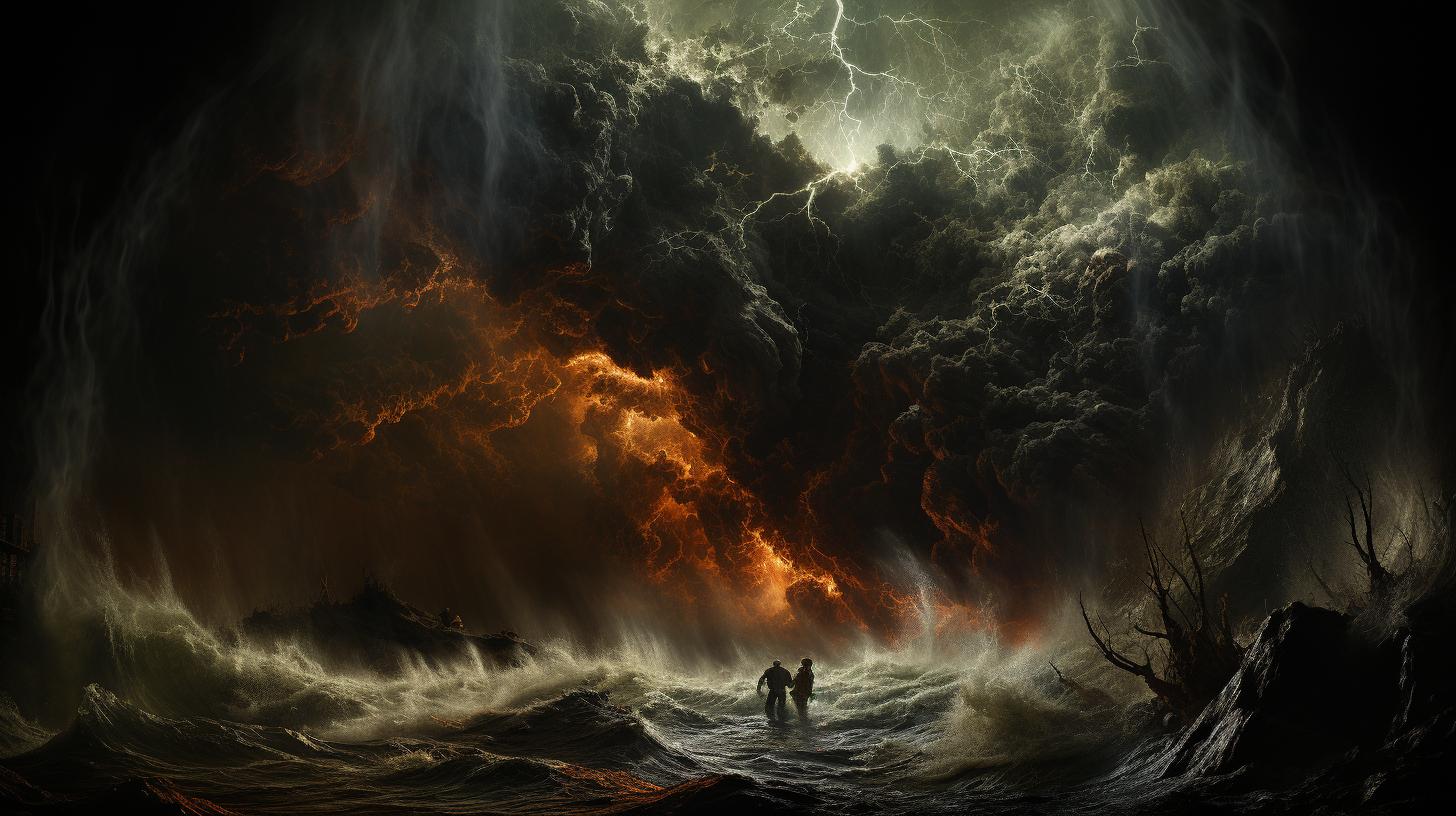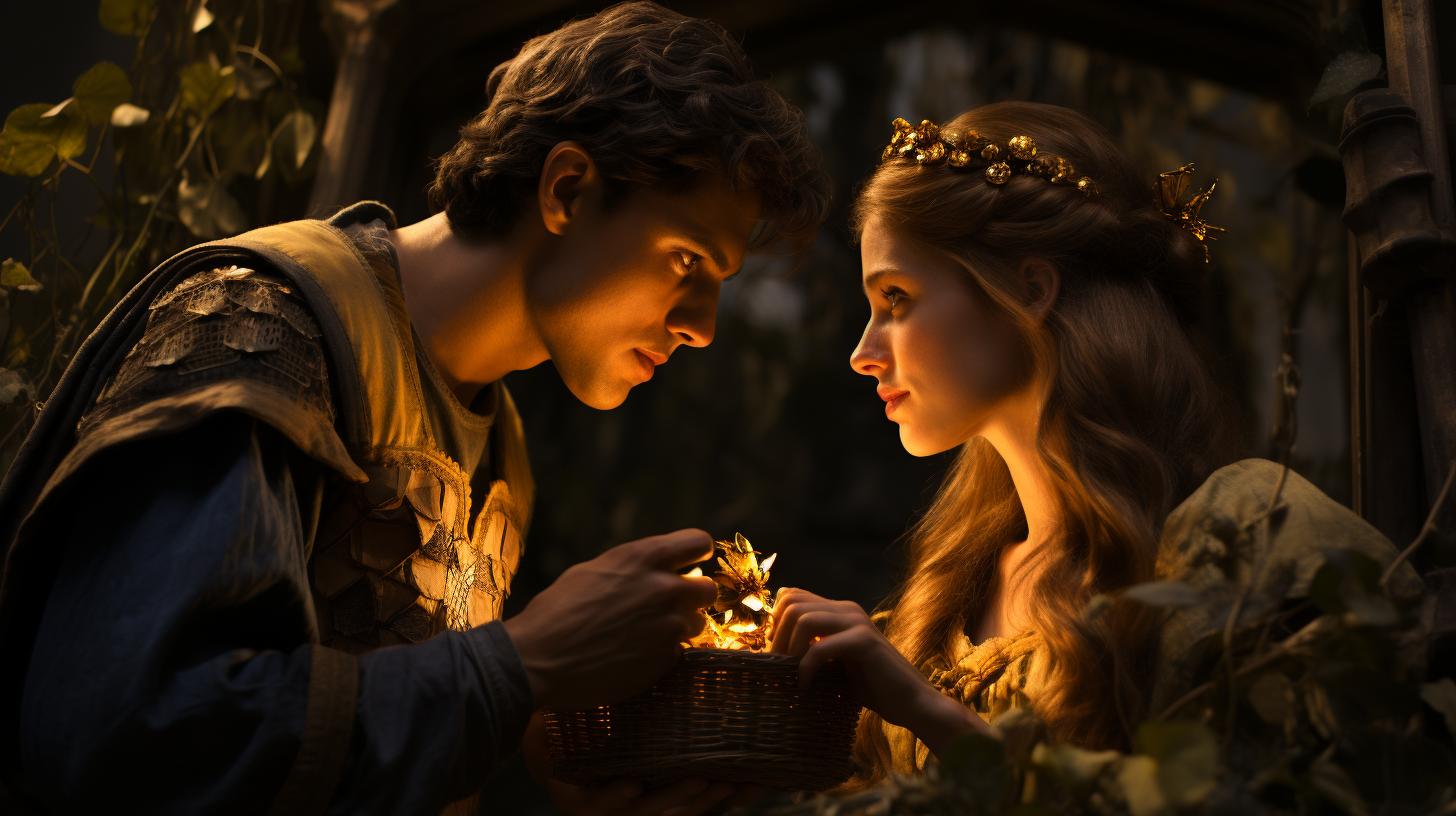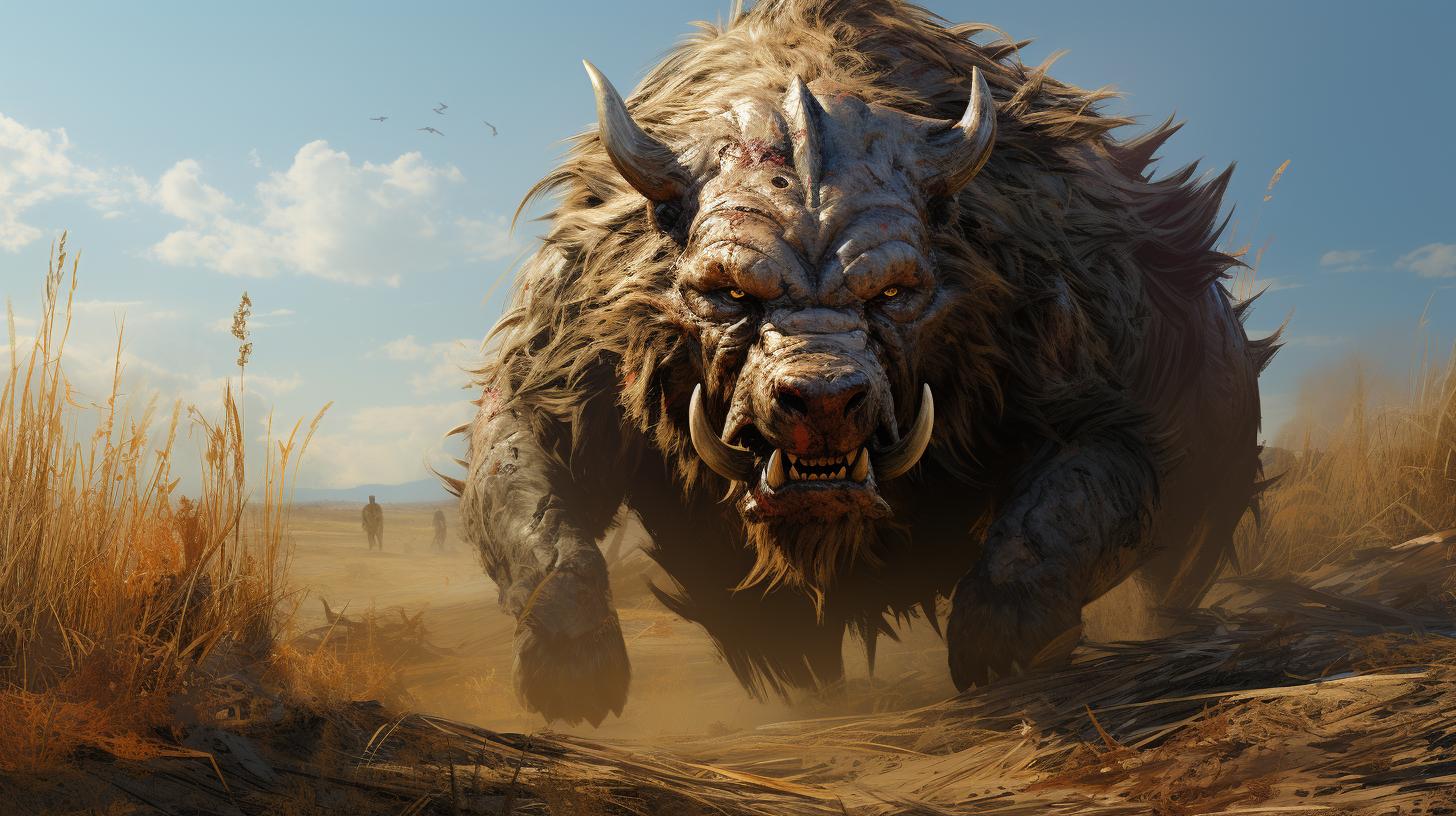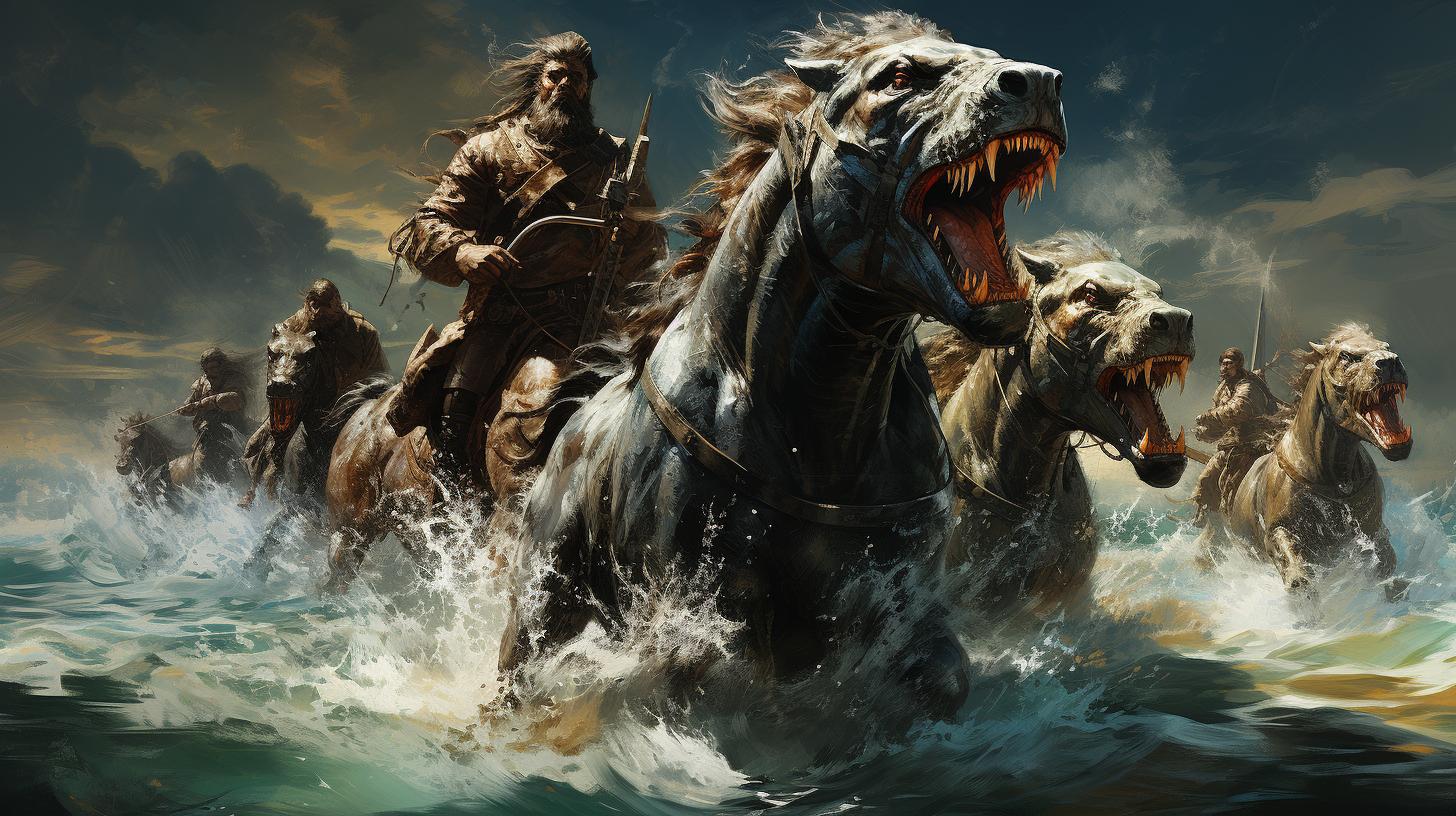Actaeon Greek Myth: The Tragic Tale of a Hero and the Wrath of the Huntress Artemis
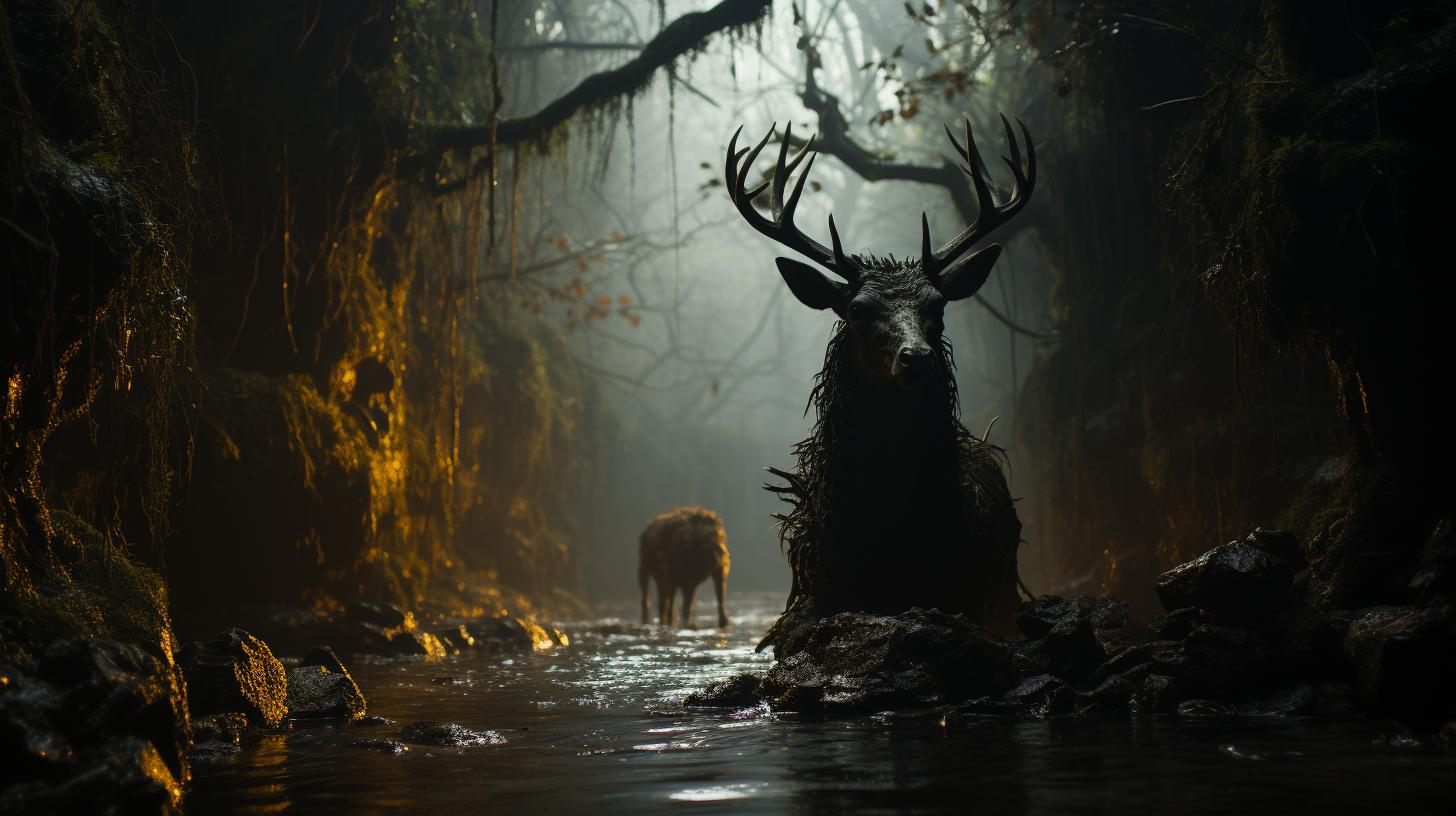
Actaeon, a hero of Greek mythology, tragically incurred the wrath of the huntress Artemis. Trained by the centaur Chiron, Actaeon became a skilled hunter like Achilles. However, his fate took a dark turn when he stumbled upon Artemis bathing in the forest.
As punishment, she transformed him into a deer, leading to his own hounds relentlessly chasing and tearing him apart. This article explores the background, encounter, and symbolism of Actaeon’s tragic myth, as well as its various versions and cultural significance.
Actaeon: The Tragic Hero of Greek Mythology
Actaeon, a prominent figure in Greek mythology, is known as a tragic hero whose fate was sealed by his unfortunate encounter with the goddess Artemis. This section explores Actaeon’s background, early life, and his training as a skilled hunter.
Background and Early Life of Actaeon
Actaeon was born in Thebes, a city in ancient Greece, as the son of Aristeus, a shepherd, and Autonoe. He grew up in the region of Boeotia, surrounded by lush forests and abundant wildlife.
These surroundings would later shape his destiny as a renowned hunter.
While Actaeon’s upbringing was relatively ordinary, his family lineage traced back to prominent figures in Greek mythology. His grandmother was Cadmus, the founder of Thebes, and his mother, Autonoe, was a daughter of the god Dionysus.
Actaeon’s Training and Skills as a Hunter
Actaeon’s passion for hunting took root at a young age.
Recognizing his potential, he was mentored by the legendary centaur Chiron, who was known for his wisdom and expertise in various fields, including hunting.
Under Chiron’s guidance, Actaeon developed exceptional hunting skills and became a proficient archer.
He learned how to track and pursue game with precision, honing his senses and physical abilities to become a master of the hunt.
Actaeon’s training with Chiron not only shaped his hunting prowess but also instilled in him a deep reverence for nature and the creatures that inhabited it.
This reverence would later be tested in a moment of tragic transgression.
Encounter with Artemis: The Wrath of the Goddess
Actaeon’s fateful encounter with Artemis, the goddess of the hunt, led to his tragic downfall. This section explores the transgression committed by Actaeon and the severe punishment bestowed upon him by the wrathful goddess.
The Transgression of Actaeon
Actaeon, known for his superior hunting skills, inadvertently stumbled upon Artemis while she was bathing in the forest. His curious gaze intruded upon the goddess’s sacred privacy, violating the boundaries set by her divine virginity.
Actaeon’s audacity of witnessing Artemis’s nakedness gave birth to his impending doom.
Artemis’ Punishment: The Transformation of Actaeon
As an act of retribution, Artemis cursed Actaeon by transforming him into a deer, the very creature he pursued as a hunter. The transformation stripped him of his human form, leaving him vulnerable, defenseless, and at the mercy of the natural world he once commanded.
This divine punishment serves as a cautionary tale about the immense power and wrath of the gods.
Actaeon’s Fate: Hunted by His Own Dogs
As Actaeon faced the wrath of Artemis, his punishment took a gruesome turn. His loyal hounds, driven into a frenzied state, pursued him relentlessly, fueled by their instinctive hunting nature.
Actaeon, now transformed into a deer, became the very prey he once hunted.
The Pursuit of Actaeon by His Hounds
Actaeon’s dogs, once his trusted companions, turned against him in a tragic twist of fate. Driven by a maddening frenzy bestowed upon them by Artemis, they chased Actaeon through the dense forest, their instincts urging them to capture their former master.
Actaeon’s Tragic Death and the Symbolism of the Stag
Unable to escape his relentless pursuers, Actaeon met a grisly end at the teeth and claws of his own hounds. His life was tragically snuffed out, leaving behind a profound symbolism.
As a stag, Actaeon symbolized innocent vulnerability, his fate mirroring the harsh consequences that await those who dare to violate the boundaries set by the gods.
- The Pursuit of Actaeon by His Hounds:
– Actaeon’s loyal companions turn into relentless pursuers
– Driven by a maddening frenzy bestowed by Artemis - Actaeon’s Tragic Death and the Symbolism of the Stag:
– Actaeon’s demise at the hands of his own hounds
– Symbolism of the stag as a representation of innocent vulnerability
Different Versions of the Actaeon Myth
The myth of Actaeon has been recounted in various versions throughout ancient literature.
Two notable sources that provide distinct accounts are Ovid’s ‘Metamorphoses’ and other ancient texts that offer alternative interpretations.
Ovid and His Account in ‘Metamorphoses’
Ovid, a Roman poet, provides a detailed and well-known version of the Actaeon myth in his epic poem ‘Metamorphoses.’ According to Ovid, Actaeon, while hunting in the woods, accidentally stumbles upon Artemis bathing in a pool.
The goddess, outraged by his intrusion, transforms Actaeon into a stag. This metamorphosis triggers a tragic series of events that ultimately leads to his demise.
Other Ancient Sources and Their Interpretations
Besides Ovid’s account, various other ancient sources offer different interpretations of the Actaeon myth.
These versions may differ in the specific details of Actaeon’s transgression or the motivations behind Artemis’ wrath. Some sources emphasize Actaeon’s curiosity and lack of self-control, while others highlight Artemis’ uncompromising sense of justice.
These alternative interpretations reveal the multifaceted nature of the myth and the diverse perspectives of different authors throughout history.
Symbolism and Themes in the Actaeon Myth
In the Actaeon myth, there are various symbolic elements and themes that hold significant meaning. These symbols and themes explore the human condition, highlighting the destructive power of desire and the consequences of arrogance.
The Loss of Control and the Destructive Power of Desire
One prominent theme in the Actaeon myth is the loss of control, particularly tied to the destructive power of desire. Actaeon’s curiosity and desire to see Artemis bathing lead to his downfall.
His inability to resist his impulse and his failure to exercise restraint symbolize the consequences of an unchecked desire. This theme serves as a cautionary tale, warning against the destructive outcomes that can arise from unbridled yearning.
Actaeon as a Figure of Hubris and the Consequences of Arrogance
Another significant theme in the Actaeon myth is the concept of hubris and the resulting consequences of arrogance. Actaeon’s transgression of witnessing Artemis bathing reveals his arrogance, as he believes he can breach the boundaries set by the gods.
This act of disrespect towards the divine authority leads to his punishment. Actaeon’s transformation into a deer can be seen as a metaphorical representation of his downfall, a consequence of his overreaching pride and arrogance.
- The loss of control and the destructive power of desire serve as prominent themes in the Actaeon myth
- Actaeon’s inability to resist his impulse and exercise restraint symbolize the consequences of unchecked desire
- Actaeon’s disobedience to the gods showcases the theme of hubris and the resulting consequences of arrogance
- His transformation into a deer symbolizes his downfall following his overreaching pride
These symbolic elements and themes in the Actaeon myth provide valuable insights into the human condition, reminding us of the perils of uncontrolled desire and the repercussions of hubris.
They continue to resonate in contemporary culture and serve as timeless lessons for individuals to reflect upon.
Actaeon in Art and Literature
Actaeon’s captivating story of tragedy and transformation has inspired numerous depictions in ancient Greek art. Artists sought to capture the pivotal moment when Actaeon stumbled upon the goddess Artemis bathing, ultimately leading to his demise.
These artistic portrayals often highlighted Actaeon’s fateful encounter with the goddess and the subsequent punishment inflicted upon him.
Depictions of Actaeon in Ancient Greek Art
Ancient Greek artists skillfully rendered Actaeon’s transformation into a deer and the tragic consequences that ensued. Exquisite pottery paintings showcased scenes of Actaeon encountering the goddess Artemis amidst lush woodland settings.
With meticulous attention to detail, artists portrayed the terror-stricken Actaeon beseeching Artemis for mercy as the hounds in pursuit closed in. These ancient works of art serve as enduring testaments to Actaeon’s ill-fated encounter and the wrath of the goddess.
Actaeon’s Influence on Tragic Poets and Later Literary Works
Actaeon’s myth left a profound impact on the world of literature, notably in the realm of tragic poetry. Renowned poets such as Euripides and Seneca drew inspiration from Actaeon’s tragic fate and incorporated his story into their works.
Through poignant verses, these poets explored themes of hubris, human limitations, and the consequences of defying the divine. Actaeon’s transformation and the ensuing hunt became powerful metaphors symbolizing the perils of unchecked desires and the fragility of mortal existence.
In later literary works, Actaeon’s tale continued to resonate. Authors like Dante Alighieri in his magnum opus “The Divine Comedy” referenced Actaeon as a cautionary example of punishment for voyeurism. This enduring literary presence further solidified Actaeon’s position as a compelling figure in art and literature.
- The depictions of Actaeon in ancient Greek art vividly portrayed his encounter with Artemis and his transformation into a deer.
- Tragic poets such as Euripides and Seneca drew inspiration from Actaeon’s story, exploring themes of hubris and consequences.
- Actaeon’s myth continued to influence later literary works, serving as a cautionary tale in Dante Alighieri’s “The Divine Comedy”.
Actaeon in Greek Mythology: Comparisons and Connections
The story of Actaeon in Greek mythology holds several intriguing parallels and connections with other tragic figures of ancient Greece.
Through these comparisons, we can gain a deeper understanding of the themes and significance of Actaeon’s myth.
Actaeon and Other Tragic Figures in Greek Mythology
Actaeon’s fate shares similarities with other tragic figures in Greek mythology. Like the ill-fated Phaedra and Narcissus, Actaeon becomes a victim of his own desires and the consequences that follow.
These characters serve as cautionary tales, illustrating the destructive power of unchecked passions and pride.
Furthermore, Actaeon’s transformation into a stag echoes the tragic fate of Pentheus, who was torn apart by the frenzied maenads under the influence of Dionysus. Both Actaeon and Pentheus meet their downfall as they challenge the domain and authority of powerful deities.
Actaeon’s Connection to Gods and Goddesses in Greek Mythology
Actaeon’s encounter with Artemis, the goddess of the hunt, highlights his place within the intricate web of relationships among Greek gods and goddesses. Artemis, as a virgin goddess, fiercely guards her purity and strikes down anyone who violates it.
Actaeon’s transgression reflects the clash between mortals and divine beings, exposing the inherent risks of crossing boundaries in the divine realm.
Additionally, Actaeon’s lineage as the son of Aristeus and Autonoe connects him to other notable figures in Greek mythology.
Aristeus, the son of Apollo and Cyrene, has his own tales surrounding his divine heritage and relationship with animals. Actaeon’s ancestral ties serve as a reminder of the interconnectedness of various mythical figures within Greek lore.
- Actaeon’s myth shares similarities with tragic figures such as Phaedra and Narcissus.
- Pentheus, like Actaeon, faces a tragic end as they challenge powerful deities.
- Actaeon’s encounter with Artemis explores the clash between mortals and gods.
- Actaeon’s lineage connects him to other prominent figures in Greek mythology.
By examining Actaeon’s role in relation to other tragic figures and his connections with gods and goddesses, we unravel the complex tapestry of Greek mythology and gain insight into the universal themes and lessons woven into Actaeon’s tragic tale.
Actaeon’s Legacy and Significance in Modern Culture
Actaeon’s Impact on Contemporary Art and Literature
The story of Actaeon continues to inspire artists and writers in contemporary times, showcasing the enduring power and relevance of this ancient Greek myth. In the realm of art, Actaeon’s transformation into a deer and his tragic fate have been depicted in various mediums, including paintings, sculptures, and even digital art.
The symbolism of Actaeon’s punishment and the themes of desire, hubris, and the consequences of curiosity resonate with modern audiences, allowing artists to explore these universal themes through their creative interpretations.
Likewise, Actaeon’s tale has left its mark on literature. Many authors have referenced or retold the story in their works, showcasing Actaeon’s journey from a skilled hunter to a hunted stag as a cautionary tale about the dangers of crossing boundaries or indulging in forbidden knowledge.
This mythological narrative serves as a source of inspiration for contemporary writers, allowing them to explore complex themes such as morality, power dynamics, and the consequences of defying divine authority.
The Enduring Relevance of the Actaeon Myth in Popular Culture
The Actaeon myth continues to captivate popular culture, making appearances in various forms of media such as films, television shows, and even video games.
Its timeless themes of curiosity, punishment, and transformation resonate with audiences of all ages, offering opportunities for engaging storytelling and exploration of moral dilemmas.
- Actaeon’s tragic fate serves as a cautionary tale in storytelling, reminding individuals of the consequences that may arise from overstepping boundaries or seeking forbidden knowledge.
- Actaeon’s transformation into a deer also acts as a metaphor for the loss of human identity and the struggle to regain control, making it a compelling narrative device for character development.
- The hunt and pursuit themes present in Actaeon’s story have found their way into various genres, providing a foundation for thrilling adventures and dramatic tension in film, television, and video games.
- Moreover, the Actaeon myth provides an opportunity to examine ideas of power, agency, and the forces of destiny, making it a thought-provoking source of inspiration for creators in popular culture.
As the years go by, the Actaeon myth remains a source of artistic and creative exploration, reminding us of the enduring power of Greek mythology and its ability to transcend time and cultures, resonating with audiences around the world.
.











